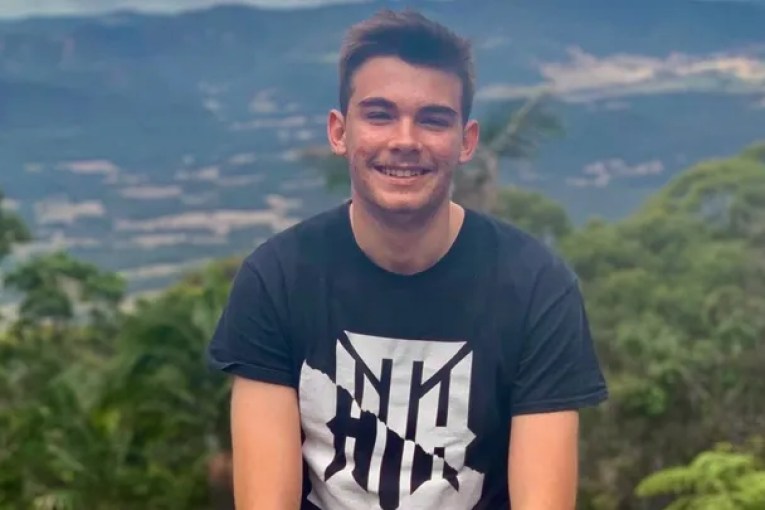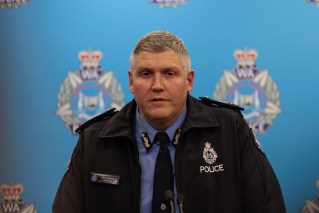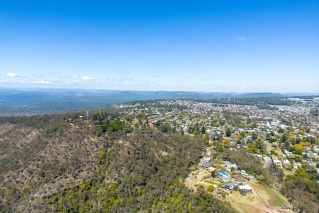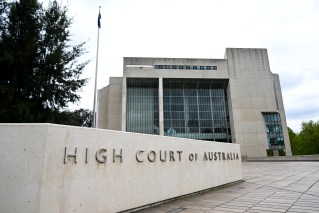More underwater noises have been picked up where a Titanic sub went missing in the North Atlantic, as an expert said the sounds were likely the crew saying “we are alive”.
In an update on Thursday morning (AEST), the US Coast Guard’s Captain Jamie Frederick said a search aircraft had picked up fresh sounds using underwater sonar buoys.
It came after Rolling Stone revealed on Wednesday that a Canadian aircraft had detected intermittent “banging” coming from the search site.
However Captain Frederick said analysis of the noises had been “inconclusive”.
“We don’t know what they are, to be frank with you,” he said.
“We’re searching in the area where the noises were detected.”
One expert told the ABC the “banging”, which reportedly happened at half-hour intervals for up to four hours, was a textbook survival tactic.
Frank Owen, from the Submarine Institute of Australia, said it would be a message telling rescuers “we are alive” and “that we know you would be looking for us and these are not just random noises”.
The fact that the noises were picked up by sonar buoys was “encouraging” because it suggested the missing sub may not be as deep down as feared, he said.
In a separate interview with the BBC, Mr Owen said the signals “smack of advice” coming from one of the crew trapped in the vessel – experienced navy diver and French explorer Paul-Henry Nargeolet.
“He would know the protocol for trying to alert searching forces… on the hour and the half-hour, you bang like hell for three minutes,” Mr Owen said.
Training undertaken before the Titan began its dive to view the Titanic wreck on the ocean floor would also have drilled passengers on conserving oxygen in a worst-case scenario.
A previous passenger, Oisin Fanning, said the five people on board would know how to maximise their oxygen supply.
“They will immediately look to conserve oxygen straight away,” he told the BBC.
“They will do everything to keep themselves calm, breathe shallowly and preserve the oxygen for as long as possible.
“I think they’ll last with oxygen for longer than people think.”
But experts say the air supply depends on a range of factors, including whether the submersible remains intact and still has power.

The Titan and four of the five on board: Billionaire Hamish Harding, businessman Shahzada Dawood and son Suleman, 19, and expedition founder Stockton Rush.
Search intensifies
The search area has doubled, but rescuers are concentrating efforts on a remote area of the North Atlantic where the undersea noises were detected.
Estimates suggest the craft would have 20 hours of oxygen supply remaining, which would mean the crew could run out by Thursday morning (local time).
The deep-sea craft disappeared on Monday (AEST) while taking five people deep into the ocean to visit the century-old wreck as part of a tourist expedition.
The US coast guard said more remotely operated vehicle searches would be deployed in the noise area.
A French team will also bring “state of the art equipment” to help.
But even if the submersible is located, retrieving it presents huge logistical challenges, given the extreme conditions kilometres below the surface.
Teams from the US, Canada and France have searched more than 25,900 square kilometres of open sea, roughly the size of Lebanon.
The 6.7-metre submersible Titan, operated by US-based OceanGate Expeditions, began its descent at 8am on Sunday (local time).
It lost contact with its parent surface vessel during what should have been a two-hour dive to the Titanic.
The wreck of the British ocean liner, which sank when it hit an iceberg on its maiden voyage in 1912, lies on the seabed at a depth of about 3810 metres.
It is about 1450 kilometres east of Cape Cod, Massachusetts, and 640 kilometres south of St Johns, Newfoundland.
Those aboard the submersible, the highlight of a tourist adventure that costs $US250,000 ($367,000) per person, included British billionaire and adventurer Hamish Harding, 58, and Pakistani-born businessman Shahzada Dawood, 48, with his 19-year-old son Suleman, who are both British citizens.
French explorer Paul-Henri Nargeolet, 77, and Stockton Rush, founder and chief executive of OceanGate Expeditions, were also reported to be on board.
A friend of Mr Harding, Jannicke Mikkelsen, who has accompanied the entrepreneur on other expeditions, told Reuters on Tuesday she was hoping for good news but was not optimistic.
“It would be a miracle if they are recovered alive,” she said.
-with AAP










